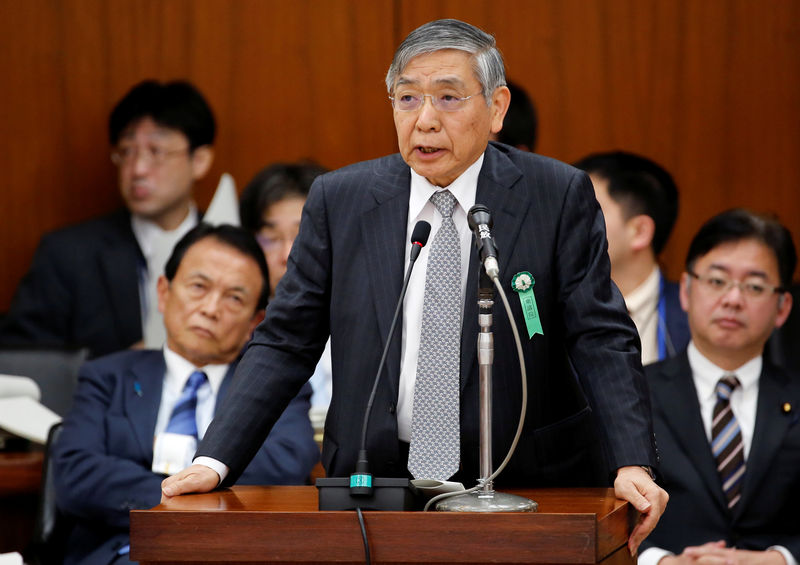By Stanley White
TOKYO (Reuters) - Bank of Japan Governor Haruhiko Kuroda said on Wednesday that once the central bank starts to normalize monetary policy the process would be "very gradual," and that the BOJ would pay attention to any risks to the economy.
Speaking in the lower house of parliament, Kuroda said the BOJ would not continue with its aggressive monetary easing when inflation reached its price target and the economy was growing stably.
Kuroda also said financing public debt was not part of the BOJ's mandate.
"Assuming we do meet the 2 percent price target and then normalize policy, then this process would be very gradual and take economic conditions into account," Kuroda said.
A complete exit from quantitative easing is likely distant because core consumer prices rose only 0.9 percent in January from a year ago, well behind the target.
However, economists worry that quantitative easing will drag on so long that the BOJ won't be able to exit from these policies without disrupting financial markets.
Kuroda said the U.S. Federal Reserve is an example of how a central bank can slowly exit from quantitative easing and return monetary policy to normal but still remain vigilant to risks to the outlook.
The BOJ has a negative 0.1 percent interest rate policy and buys government debt to keep 10-year yields near zero.
Some economists say allowing a larger increase in 10-year yields is sensible because interest rates will rise naturally as Japan's economy improves.

The BOJ also buys exchange-traded funds, a policy which has come under criticism for distorting underlying stock prices.